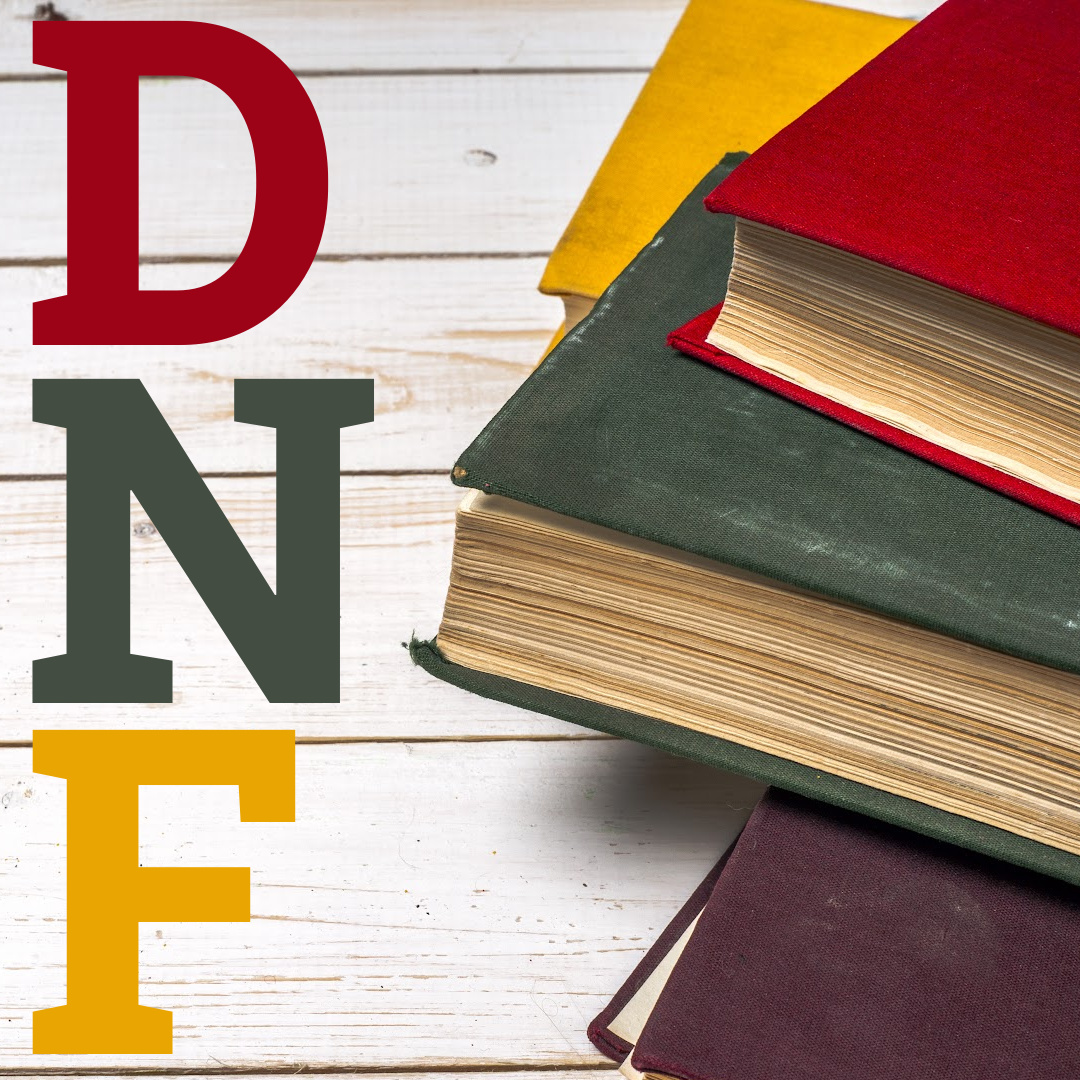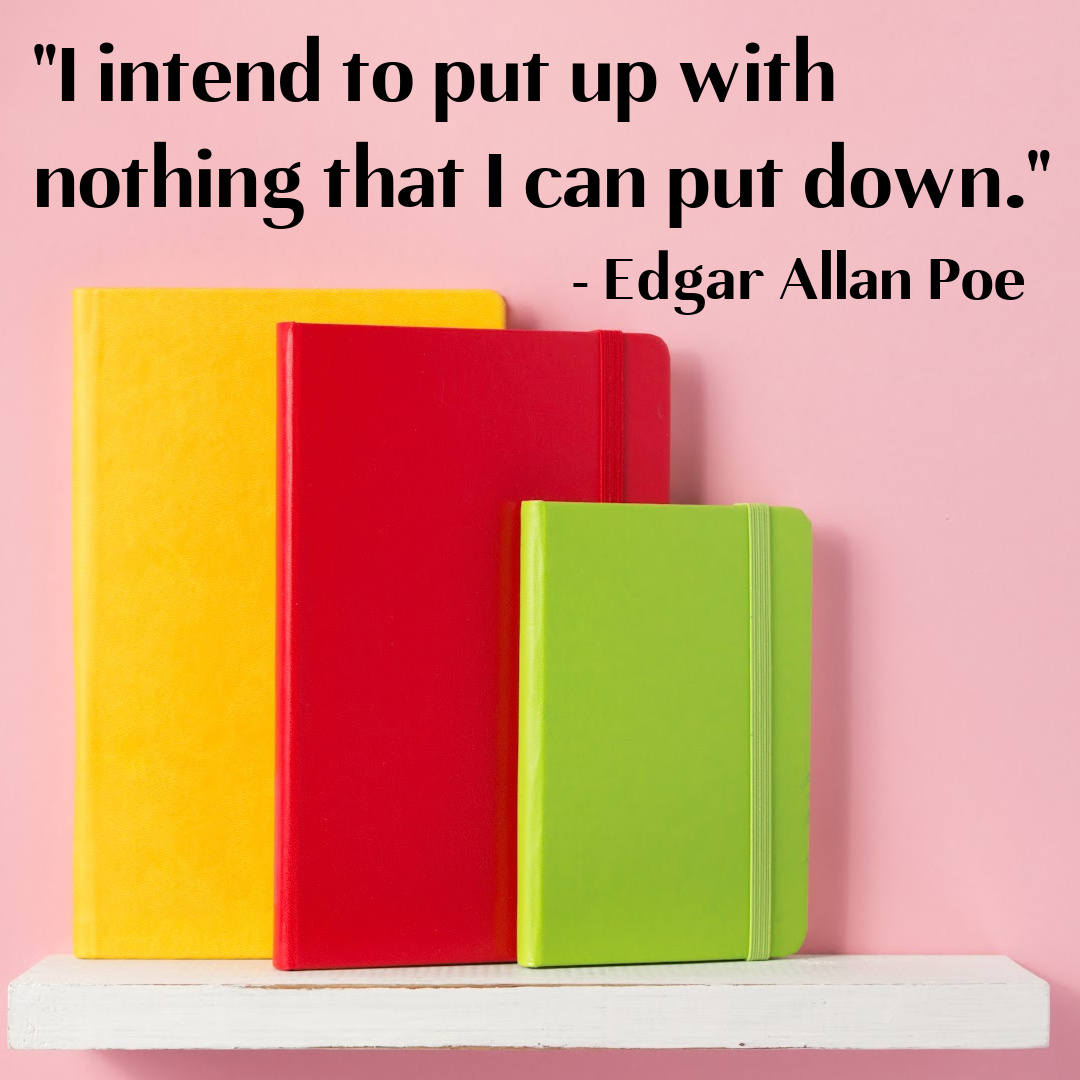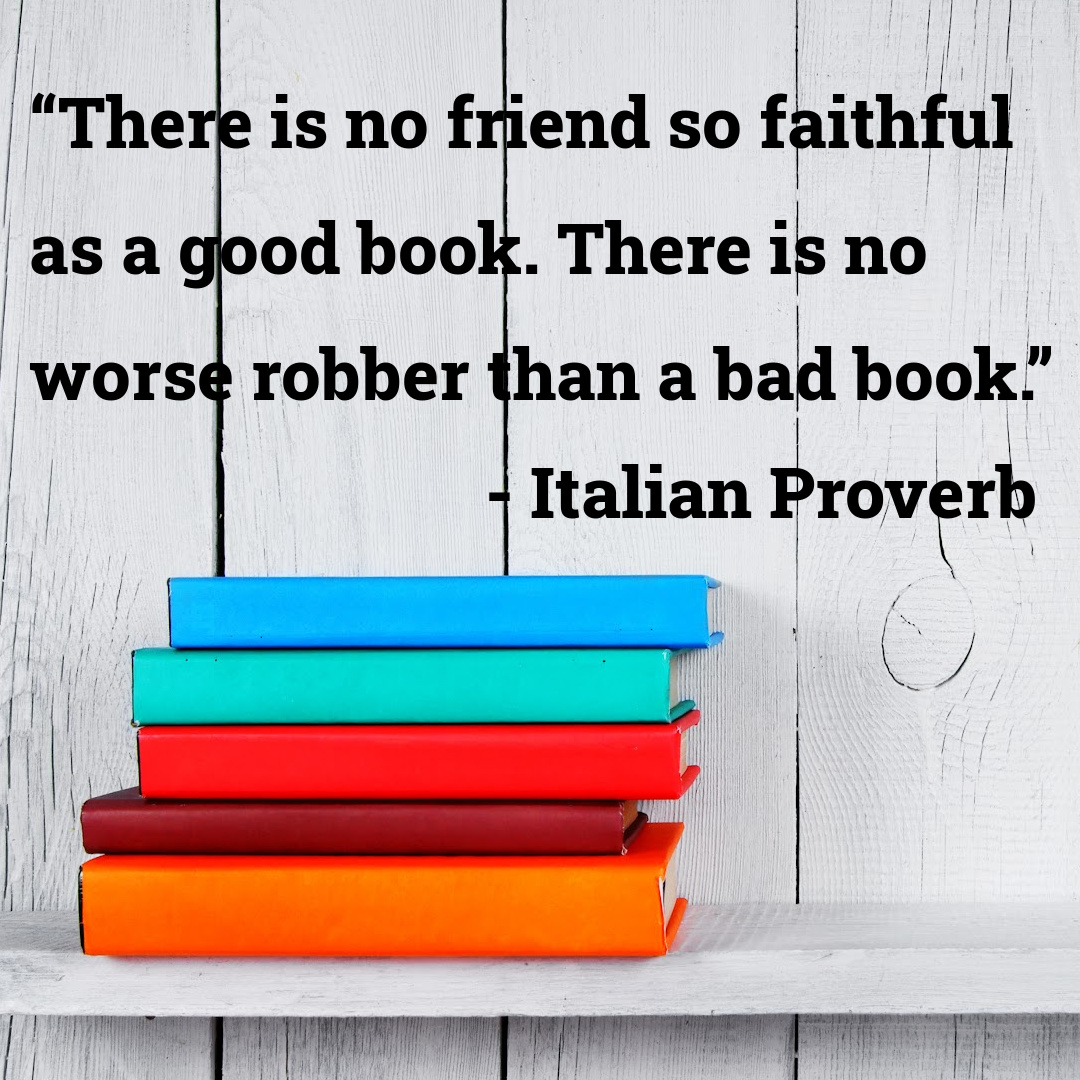To live in the 21st century is to swim in a sea of TLAs (three[or two]-letter-acronyms). One might think that the bookish world—with our love of long-form thought and sophisticated vocabulary—might be immune to the TLA pervasiveness, but even here the phenomenon exists. We can’t wait to dig into that ARC (Advanced Reader Copy) of the YA (Young Adult) novel that’s been sitting on our TBR (To Be Read list); despite its many TWs (Trigger Warnings), we’re promised it has a dreamy MMC (Male Main Character) and delightful HEA (Happily Ever After). RTC (Review to Come)—unless we make the weighty decision to DNF (Did Not Finish).

Of all the acronyms—bookish and otherwise—that saturate our lexicon, I think that DNF might be the most useful and the most fitting. The abbreviation itself evokes the incompleteness of our reading experience. And those three letters could easily read D&F, signifying the letter grades we would likely give these books that were not even worthy of completing.
While the term DNF is a newer one, the phenomenon of refraining from finishing books is far from modern. I’m sure that readers have been leaving books unfinished for as long as books have been in existence. But the habit of DNFing books is hardly a universal one. Some readers—the “Serial DNFers”—DNF with abandon, unable to stick with disfavored books while other, better books are vying for their attention. Other readers—the “Never DNFers”—are determined to maximize every reading experience, feeling they owe it to the books and their authors to read each and every word of every book, from Title Page to Acknowledgements. I think that most readers (myself included) lie somewhere in between.
What counts as a DNF?
Before we move forward with the discussion of DNFs, I think it’s important to define our terms. Depending on the reader, a DNF could mean anything from passing on a book after sampling a few pages, to reading 90% of a book before throwing in the towel. For me, I consider a book a DNF if I’ve gotten far enough into the book to mark it as Currently Reading on my Goodreads and StoryGraph shelves, which I usually do after reading a few chapters.
For me, a true DNF is not the same as a discarded sample. I often sample a book and, after a few pages, realize it’s not for me: either the voice or the tone isn’t a good fit, or the story isn’t drawing me in. If it’s obviously a book I won’t ever want to read, I’ll remove the title from my Goodreads TBR. More often than not, these books fall into the category of not right now and remain on my Goodreads TBR. If a not right now (NRN?) book was borrowed from the Library on Hoopla or Libby, I’ll return the book to the library but tag it so I can pick it up when it’s a better fit for my reading mood.

How do I feel about DNFing?
On an objective level, I have no qualms about DNFing a book. Although I do think some readers are a little too quick to DNF a book that MIGHT be a great match if given more of a chance, it’s simply true that not every book is for every reader; it makes sense to quit a book that is obviously a mismatch. Of course, this assumes that the book in question is being read for purely personal reasons (entertainment, self-improvement, education, etc). I do not believe in quitting books that are assigned reading. (Yes, I was the student who read ALL of EVERY book I was assigned in school.) I also feel strongly that members of a book club have an obligation to other members to finish a book if they hope to be involved in the book discussion. And of course a reader is obligated to complete a book she has committed to reviewing.
But for the reader who has picked up a book for the sheer joy of the reading experience, DNFing books that are not delivering the desired experience can be an effective strategy for achieving a rewarding and meaningful reading life void of unsatisfactory books. This is especially true for adventurous readers who like to go off the beaten path with their book choices, or who like to go into a reading experience without doing a lot of pre-reading reconnaissance.
When and why do I DNF?
While I am all for others DNFing books, it’s not something I do very often in my own reading life—mostly because I don’t need to! I am not an adventurous reader in that I do quite a bit of vetting before deciding to read a book, and I’m pretty adept at choosing books that will work well for me, thanks to a combination of knowing my own reading tastes, relying on trusted book reviewers for recommendations, and having a solid process for choosing my next book. I can usually tell within a page or two whether or not a book is one I’ll want to see through to the end, and I don’t have to be loving a book for it to feel like a worthwhile reading a experience.
Another reason I rarely DNF is more superficial: for better or for worse, I care about my running book count, and I hate the thought of wasting precious reading time on a book that can’t be included in my final book count for the year. So if I’ve read more than half of a book—especially if it’s a long book—I will almost certainly persevere through the end, even if it means doing some speed-reading/skimming of a print or Kindle book, or speeding up an audiobook from my usual 1.2x listening speed.
I can count on one hand the number of books I’ve DNFd in the last two years, and all but one of them was abandoned out of pure disinterest. I almost never need to abandon a book for content issues since I use StoryGraph’s Content Warnings to prescreen books I have any concerns about, and I have no problem skimming over uncomfortable graphic content (bedroom scenes, violence, etc.). In recent memory, I have only DNFd one book out of sheer dislike, and in that instance the author’s worldview was so diametrically opposed to my own that my reading experience was becoming too emotionally charged and ultimately counterproductive. I have zero regrets about prematurely ending that reading experience, and I probably need to get a little more comfortable with DNFing books that make me angry (like this one did).

Ultimately, the choice to DNF is a deeply personal one. DNFing is an art, not a science! I’m pretty comfortable with my own approach, but I would love to hear from YOU: are you quick to DNF a book? What goes into your decision to quit a book rather than finishing it? Do you wish that you DNFd more or less than you do? Please share your DNF opinions and experiences in the Comments!
I agree with Sue5–if I don’t look forward to picking a book up, I am most likely not going to finish it. I quit A Gentleman in Moscow at 187 pages. It got such great reviews and I kept thinking I should like it but I had to force myself to read it and finally decided to just give up. I do find that having set a reading goal on Goodreads influences me to finish a book that I am no longer enjoying particularly if it is easy reading (The Bright Years comes to mind.) I’m a little embarrassed to say that I DNF almost all non-fiction other than memoirs. I listen to a podcast and think I want to deep dive into a subject and get a book from the library but end up just not wanting to put the mental energy into reading the book (Spellbound by Molly Worthen is a recent example) when I can pick up a novel and get lost in a story. I think stage of life plays a big part in my decision to continue reading or stop reading something. I’m 63 years old and I have so many books I still want to read and recognize that time is ticking away!
I’ve found that a lot of the nonfiction books I hear about through podcast interviews end up not being worth my time, they cover the most important parts in the podcasts (which are more memorable than a book for me). I LOVED both A Gentleman in Moscow (it’s on my all-time-favorites list) and The Bright Years (in my top four this year), but I can see how they wouldn’t work for everyone, and Gentleman is especially tough to push through since it’s long.
I’m not eager to DNF, I’d rather read the whole thing. Last year, I completed 109 books, and DNF’d 7. But in that year, I acquired three books that I wasn’t sure about, and would have put aside until later, but events transpired that I didn’t have a plan for my next read, and so I just thought, “I’ll sample them! If I don’t like them, I’ll dump them! That way, I can weed several of these books out quickly!” It turned out that I DNF’d all of them. And I read more than halfway of one title that I thought I would like very much (time-travel, believe it or not), but I was just so bored. (That was “Ministry of Time”) I finally, reluctantly, I flipped to the last chapter, which didn’t do anything for me, either, and quit. One of them I just read a chapter. The others were somewhere in between. But it’s that nagging feeling that I should FINISH, or that it might get good, if I’ll just read further. I try to make sure that I really don’t want to read it anymore. If I do not look forward to picking it up at all, that’s a sign.
It’s so hard to fight that “I should finish” feeling! I was initially excited about Ministry of Time but the reviews were not great, so I passed on it.
I’m a prolific DNFer! Some reasons I DNF include boredom, excessive profanity, heavy handed author agenda, the “ick” factor, child abuse, too bleak, too dysfunctional, paranormal/witchcraft …. At times I skim to the end if I’m curious about the ending. If I read more than 50% I count it toward my GR goal. I agree with you about vetting carefully! I tend to avoid certain authors, time travel, time loops, and magical realism. FOMO can get me in trouble! (Several instances this year!) great discussion post!
Thanks, Carol! You are one of my DNF inspirations. I think I like the idea of counting books read past 50% towards the book total, that would free me up to DNF more which might also make me more open to taking some more reading risks! So funny that time travel is a no-go for you because it is my favorite trope; it’s true that no book is for every reader!
While I have enjoyed time travel a handful of times, l’m a diehard fan of realistic fiction! There was one Diane Chamberlain book I enjoyed…..The Dream Daughter